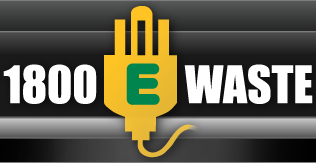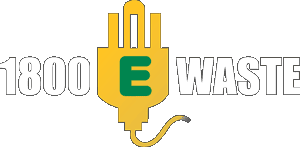Trying to do the right thing when it comes to disposing of your electronic waste can be difficult – you are no longer allowed to put electronic waste out with your council rubbish collections and it’s becoming more and more common for local tips to refuse your old computers and analogue televisions. So, when you finally find someone that will accept your old ewaste, and they say that they’ll do it for FREE, you might think you’ve found the answer to all your ewaste problems – but what is really happening to your Ewaste?
Be wary of “Fake” Recycling Companies
Recent reports in America have highlighted the rise of “fake” recycling companies, who claim to recycle electronic waste within the U.S, when it’s actually being exported illegally. A report by 60 Minutes on American news network CBS, tracked several cartons of obsolete CRT monitors from Denver to Hong Kong – the previous owners of these CRT monitors believed that they were doing their bit to help the environment and combat illegal exporting by dropping them off at a council ewaste collection – how wrong they were.
American organisation The Electronics Take Back Coalition also published information of several other similar organisations within the United States that were duping councils and charities to “donate” their electronic waste so that it could be refurbished or recycled. In reality, it was shipped abroad illegally to various locations including South Africa and Hong Kong. What’s worse is that this particular organisation had promised to pay the charities U.S $10,000 for their electronic waste – according to the report, these funds are still outstanding.
What is wrong with exporting Ewaste?
Aside from deceiving their customers and promising services that they were clearly not providing, what these companies are doing is highly illegal. The Basel Convention on the Control of Transboundary Movements of Hazardous Wastes and their disposal has 170 members, including America and Australia, who agree not to export any hazardous waste unless proper licenses have been acquired. The treaty aims to minimise the transportation and improper disposal of dangerous materials, such as our obsolete computers and analogue televisions, but companies are clearly finding ways around these laws.
Exporting electronic waste to these countries can seem appealing to fraudulent recycling companies – the labour is cheaper and they are usually getting paid for the obsolete electrnic equipment. However, these countries are completely unequipped to deal with even small amounts of electronic waste, not to mention the tonnes that make it through customs ever year. In the instances above, some of the containers were rejected by Chinese customs and returned to the United States, but not all illegal shipments get caught, as proved by the astonishing amount of electronic waste shown in the 60 Minute Report below.
As the report shows, not only are these “fake” recyclers breaking the law, but they are putting the lives of hundreds of Chinese residents at risk, by exposing them to the toxic fumes that burning Ewaste can produce. Electronic waste is full of highly dangerous materials such as lead, cadmium and mercury to name but a few. The release of these toxins can get into water streams and soil systems, so it’s not only polluting the air these villagers breathe, but also the water they drink and the food they eat. According to this report, pregnancies in this small village of Guiyu are six times more likely to end in miscarriage, and 7/10 children have too much lead in their blood. And this is all because prosperous countries don’t want to deal with the result of our crazy obsession with technology.
We’re not trying to say that updating your technology is bad – we love our iPhones and are constantly having to update our communication technology to keep up with the lates developments. This is about making sure that we take responsibility for what happens to our obsolete electronic equipment when we upgrade it. The United Environment Programme suggests that in 10 years the ewaste problem in these countries will increase by 400% in Chine and South Africa from 2002 levels, and by 500% in India. This can’t be allowed to happen.
Look out for our next article on how to be sure you’re not caught out when it comes to recycling your electronic waste, and why the affects of exporting your electronic waste could be closer to home than you think.
References Following the Trail of Toxix Ewaste – 60 Minutes (CBS) – Nov. 9, 2008 Beware of Fake Electronics Recycling – Electronics Take Back Coalition

